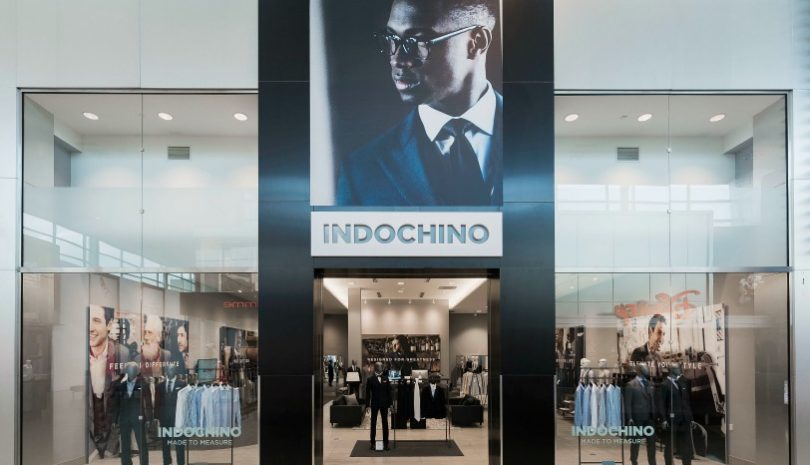Mass customisation at “inflection point”, says Indochino’s Drew Green

When the founders of Indochino started their made-to-measure online suit business in Vancouver, Canada, 10 years ago, customised fashion for the mass market was still in its infancy.
But since then, consumers have become more comfortable shopping online, web visualisation tools have advanced, on-demand manufacturing processes have matured and mass customisation as a business model has taken off.
Today, a number of Australian startups – such as Shoes of Prey, Mon Purse and InStituchu – let customers design their own shoes, handbags and suits. And online retailers like Disrupt Sports and Tinyme are applying the principles of mass customisation to new categories.
But Indochino remains a leader in the space, having been among the first to embrace offline showrooms in 2014. Today the company has 17 showrooms in Canada and the US, with sales split roughly 50-50 between its offline and online business.
“A couple years ago I said I’d open lots and lots of showrooms and everyone thought I was nuts,” Indochino’s CEO Drew Green recalled, speaking to Internet Retailing recently.
“What I saw was an opportunity to effectively establish relationships with customers. It’s a totally engaging experience that differentiates us from the competition,” he said, adding that the purpose of the showrooms is to reach customers who may need a little more hand-holding to buy their first suit from Indochino.
The showrooms are appointment-based and each customer gets a personal Style Guide to help them find the right fit and look. Green said the company is on track to have 40 showrooms by the end of 2018 and 150 globally by 2020.
At the same time, Indochino is working to shorten delivery times. The company currently promises a four-week turnaround on custom suits but averages around three weeks, according to Green.
“I aspire to launch an option for one week delivery, which is absolutely unheard of in our industry, late this year, early next year,” he told Internet Retailing.
“There’s a lot of work to be done,” Green admitted, but he believes it will be necessary to make mass customisation more than just a niche offering.
“2016 was an inflection point for made-to-measure. We finally crossed the chasm of customers that had never even thought of made-to-measure becoming loyal customers. [But] to truly disrupt ready-to-wear we need to get under two weeks’ delivery at a minimum,” he explained.
“If we were to get [delivery] under one week, we could supplant the entire ready-to-wear experience.”
About 70 per cent of Indochino’s sales occur in the US, 25 per cent in Canada and 5 per cent everywhere else.
“We’re primarily focused on the US, and Canada is a secondary market,” Green said.
“When we set up our supply chain and manufacturing, we did so in a way that we could serve up to 150 countries, but there’s so much opportunity in America, we want to make sure we’re fully grounded there,” he said.
This involves making sure the customer experience is “world class” both online and in-store. For the moment, at least, that means focusing on people and product and getting a “360-degree-view of the customer and how they interact with our brand”, rather technology.
“We haven’t really gotten into the buzz of app measurements and scanners. It’s so complex and I’m pretty skeptical. I don’t think there’s a place for it at this time.”
Comment Manually
You must be logged in to post a comment.

No comments